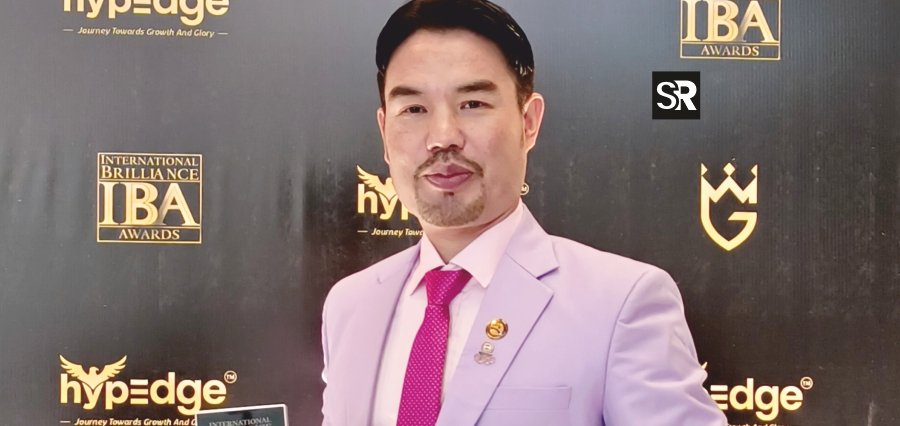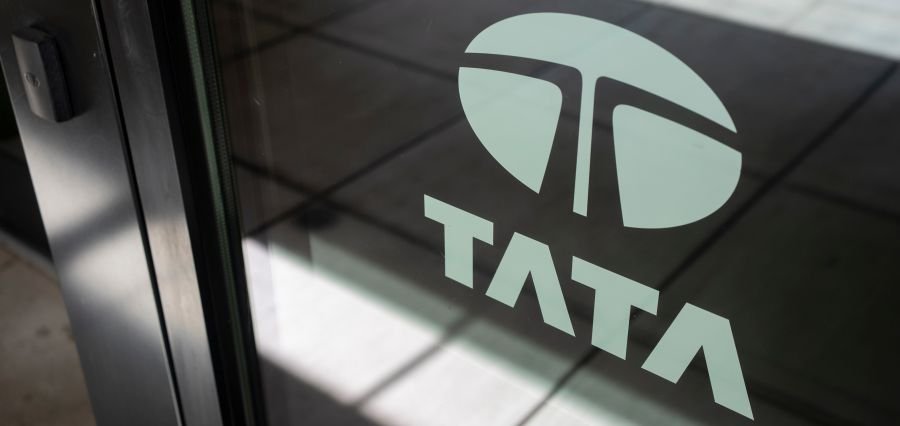Martial arts is a journey of an individual in becoming a leader from a nobody, believes Jugeshwor Singh Kshetrimayum, Chairman &Managing Director –India Kuo Shu Federation (IKSF) and Indian Chairman & Executive Committee Member of ‘The World Kuo Shu Federation (TWKSF, USA).’
The most important thing he learned in martial arts is not punching, kicking, or weapons skills. It wasn’t the camaraderie, the smiles and sweat, the love of the art, or anything you expect. He says, “The most important thing I learned from martial arts is leadership.” Leading others to martial arts success is a huge responsibility. As an instructor, it can be overwhelming to teach a class of wide-eyed martial art students with one goal: black belt. ‘How do you bring them forward to success so they can achieve this tremendous goal?’
*Communication: First, good communication is key. Clear instructions. Praise. Feedback. Encouragement. These same key ingredients are used by the best leaders in the world. You cannot become an effective leader without strong communication skills, and martial arts sets you on the path to learning to communicate effectively.
*Goals: Next, martial art instructors must understand the tasks and steps that each student requires for their goals. If you have no goals, you have no direction. Consider an Academy or School you have had where there was no discussion about your path forward. You feel like you are in limbo and have no direction. This lack of goals creates ambiguity and negativity.
Martial arts help you set goals for yourself and your students. For your students, you learn to appreciate their unique and varied talents and accomplishments. You provide them with direction and a succinct path forward. The best leaders are goal-oriented and help their teams stretch toward success.
*Mentorship: Martial arts allow me to be a mentor, coach, and cheerleader, all of which are incredible leadership skills.
Jugeshwor adds, “I had been the biggest fan of my martial art students.” Watching them flourish, learn, and grow was exciting. Many children were so shy, bullied, and scared at first, and within months, sometimes weeks, they stood with their heads held high. Many adults came to class with preconceived notions that they can never achieve a black belt. They quickly learned that anything is possible. The transformation over a short time is astounding, and he helped them get there.
He’s promoted many martial arts students over the years, and many black belts, as well. Their grit and determination pushed them forward. “I can’t give anyone perseverance or confidence, but I can give them the tools they need to find these skills for themselves in martial arts,” claims Jugeshwor, who adds the last leadership trait he learned.
*Appreciate: Leaders who treat their teams as a group of talented individuals working together toward a common goal allow them to accomplish great things. Cheering them on toward success is a leadership skill prompted by his years of teaching martial arts.
He believes himself lucky to have had the opportunity to own and operate his own martial arts programs for more than 20 years. He is a better person for it in so many ways. The leadership skills and attributes that he learned as a martial arts instructor connect to his career, personal life, and beyond. One of the most important is simply that he appreciates the efforts of others far more than he appreciates his own.
The best lesson martial arts instructors teach others is that wherever you are in your journey, keep pushing through the obstacles and frustrations. Martial arts instructors do not put their own success above that of their students. Instead, they teach what they know so others can achieve. Jugeshwor is the best example of that.
The Vision of a Mentor
Today, Jugeshwor’s vision for martial arts in India is to focus on holistic development and empowerment, transforming lives by fostering discipline, confidence, self-defense skills, and leadership qualities, especially in underserved communities. This includes making martial arts accessible, potentially integrating them with school education for experiential learning, and creating opportunities for youth to gain self-assurance, resilience, and community engagement, ultimately contributing to personal and societal transformation. Martial arts training instills discipline, self-respect, and confidence, providing a sense of assurance and self-worth for young people, he insists. The ability to defend oneself is an invaluable tool, particularly for women, and is crucial for increasing their sense of security and empowerment. Exercise in martial arts increases endorphins, improving mood and promoting a positive outlook on life. Principles like courtesy, honesty, humility, and justice are often taught in martial arts, contributing to a well-rounded and ethical character. By engaging in activities like these, young people can develop leadership skills, take on greater roles, and contribute to their communities.
“My vision for martial arts in underserved communities is to cultivate resilient, disciplined, and empowered youth who possess improved physical fitness, self-esteem, and life skills, fostering positive community engagement and breaking cycles of adversity through accessible, community-integrated programs that offer consistent, safe spaces for personal growth,” states Jugeshwor.
Putting India on the Global Map
Before his contributions, India had a limited presence in global martial arts forums. Through his international participation, coaching, and leadership roles, he has successfully elevated India’s status in the world of Kung Fu, Wushu, and Kuo Shu. His appointment as the Indian Chairman of ‘The World Kuo Shu Federation (USA) and Executive Committee Member of the same organization has led to increased recognition for Indian martial artists. His efforts have also resulted in more Indian athletes competing and winning medals in international competitions. By representing India as a coach in multiple global events, he has opened doors for future athletes, ensuring that India is not just a participant but a strong contender on the global stage.
A Saga of Significance
Recognizing the need to institutionalize and expand martial arts training, he has actively contributed to various prestigious organizations, ensuring that his impact on the sports community is widespread and lasting.
In 2012, during a visit to Malaysia, Jugeshwor underwent rigorous training and successfully qualified to become the Indian Chairman of ‘The World Kuo Shu Federation Headquarters, Baltimore, USA. This esteemed position allowed him to elevate India’s representation in global martial arts forums, promoting Indian athletes on international platforms. Additionally, he was appointed as an Executive Committee Member of ‘The World Kuo Shu Federation, further strengthening his influence in shaping the future of Kuo Shu and Wushu in India.
Understanding the financial challenges that many martial artists face, Jugeshwor took an extraordinary step in 2021 by establishing the Warrior Kung-Fu Academy in Bangalore, Karnataka. His vision was not just to train athletes from all around the world, like the US, France, the Nederland, the UK, and the UAE, but to empower martial arts practitioners by creating employment opportunities. Today, his academy employs over 15 trainers, all of whom receive salaries to support themselves while also competing at senior levels. The academy now trains over 450 students, making it one of the largest martial arts institutions in the region.
Jugeshwor’s commitment to community service and martial arts education is also evident in his collaboration with Indus International Community School, Bangalore, where he provided one year of free training in self-defense, discipline, and competitive sports, ensuring that students gained essential life skills beyond physical combat. Through his dedicated work in organizations and institutions, he continues to build a stronger, more disciplined sports culture in India, uplifting martial artists and shaping future champions.
Success Redefined
For Jugeshwor, achievements in martial arts go beyond winning competitions; it’s about personal growth and dedication. It teaches respect, discipline, and perseverance. It boosts confidence and teaches valuable self-defense skills. Martial arts achievements symbolize hard work and commitment.
A personal definition of success for martial arts students focuses on personal growth, continuous self-improvement, and internal qualities like discipline, confidence, and resilience, rather than solely on external achievements like winning or belt progression. “Success is found in consistently working towards goals, mastering new skills, and developing a strong character that can be applied both in and out of the Martial Arts Academy,” he adds.
Coaching for Life
According to Jugeshwor, martial arts equips students with the tools to manage emotions and impulses. Techniques such as controlled breathing, mindful movement, and structured sparring help them stay composed in challenging situations. Over time, they learn to respond calmly rather than react impulsively.
Martial arts training instills significant mental discipline and focus, which are critical for personal development and performance. The structured nature of martial arts practice requires practitioners to adhere to specific techniques, routines, and forms, fostering a strong sense of discipline and dedication.
Martial arts also incorporate stress-relief techniques such as meditation, breathwork, and slow, flowing movements (e.g., Tai Chi), which help students manage anxiety and frustration. This emotional resilience supports them in navigating the ups and downs of both school and life with grace and confidence.
Connected by Technology
Moreover, Jugeshwor believes that to connect with and inspire a new generation of martial artists in a digital world, it is crucial to leverage technology by creating engaging social media content, offering personalized online training, using AI for data-driven program design, building online communities, and fostering digital entrepreneurship to empower youth with business skills. Emphasizing the cultural values of martial arts, such as respect and collaboration, to build authentic brands and connect with the next generation is imperative, he adds.
The past is full of lessons and wisdom, but it is crucial to move forward with those insights, “Rather than allowing past struggles to define us. I’ve learned that living with purpose means embracing each day as an opportunity for growth, using the challenges we’ve faced as stepping stones toward a better future,” he continues. Fear is one of the biggest challenges that can hold you back from achieving your goals. It can be fear of failure, fear of the unknown, or even fear of success itself. But fear doesn’t have to stop you. In fact, it can actually be a powerful motivator.
Carving A Legacy
Apart from his outstanding achievements as a player, Jugeshwor has carved an even greater legacy as a coach, shaping the future of Indian martial arts. His contribution to training and mentoring young athletes has not only won India numerous international medals but has also ensured that his expertise is passed down to future generations. His ability to identify, nurture, and transform raw talent into world-class athletes has made him one of India’s most successful martial arts coaches. His coaching journey has seen him represent India on the international stage multiple times, where he has led young athletes to victory in prestigious world championships. His roles as a coach and team leader in major global tournaments include:
o Indian Team Coach in the IFMA World Muaythai Championship, 2011, Tashkent, Uzbekistan.
o Indian Team Coach in the 4th World Kuo Shu Championship, 2012, Genting Highlands, Malaysia.
o Indian Team Coach in the International Traditional Wushu Championship, 2012, Singapore.
o Indian Team Coach in the 1st World Martial Arts Council Games, 2015, Bangkok, Thailand.
o Indian Team Coach in the Taiwan World Cup Wushu Championship, 2017, New Taipei City, Taiwan.
o Indian Team Coach in the 6th Macau International Wushu Festival, 2017, Macau, China.
o Indian Team Coach in the World Championship of Vocotruyen, 2024, Ho Chi Minh City, Vietnam.
One of the biggest testaments to Jugeshwor’s excellence as a mentor is the success of his students. Over the years, his rigorous training, strategic insights, and unwavering belief in his athletes have resulted in some of the greatest martial arts victories for India. Among his most prominent mentees are:
- Mayanglambam Bimoljit Singh – Recipient of the prestigious Arjuna Award (2012) in Wushu Martial Arts. He also won bronze medals at the 15th and 16th Asian Games, held in Qatar and China, respectively, bringing immense glory to India.
- Maibam Premkumar Singh – Gold Medalist at the 11th International Wushu Championship, 2013, Hong Kong. His excellence in the sport has led him to a permanent position as a Wushu Coach at the Sports Authority of India in Imphal, Manipur.
Beyond these stars, more than 45 of his students have secured top-tier jobs in the Indian Army, Assam Rifles, and other prestigious government positions, proving that his mentorship extends beyond sports, shaping strong and disciplined individuals for the nation.
Empowering the Next-Gen of Martial Artists’ Leadership
Now, shaping the future of Kuo Shu and martial arts globally, Jugeshwor’s impact as a coach goes beyond competitions. His mission has always been to empower young athletes with discipline, resilience, and a warrior’s mindset. Under his guidance, students have not only excelled in sports but have also built careers in coaching, administration, and defense services. His role in developing India’s martial arts landscape is unparalleled, and through his relentless dedication, he continues to create champions who will carry India’s flag high on international platforms. His legacy is not just of victories but of an enduring sports culture, ensuring that martial arts in India thrive for generations to come.
Summarizing his 2025 mission and goals, Jugeshwor says it is to “Help our audience set adaptable, purpose-driven goals, equipped with concrete tools and a growth mindset, to achieve measurable progress in a dynamic world.”






